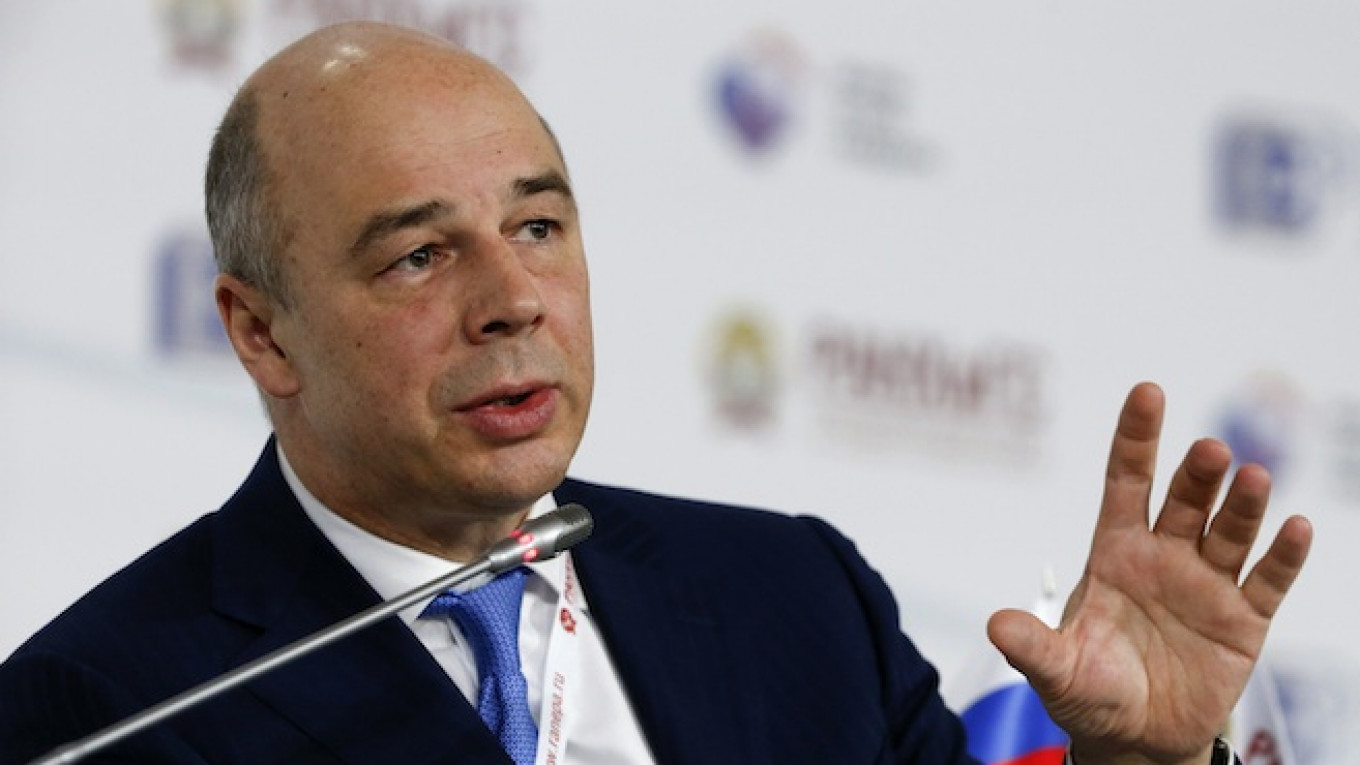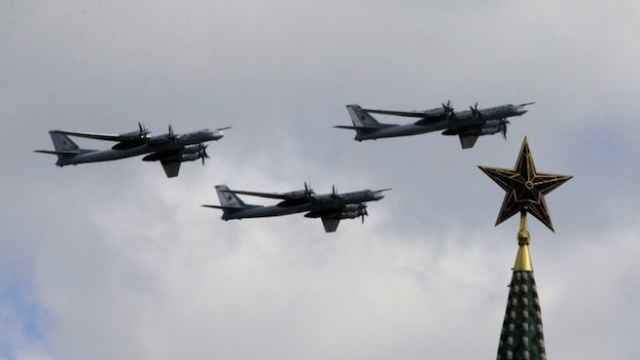Russia's government intends to spend at least 2.34 trillion rubles ($35 billion) to help the economy withstand Western sanctions and the collapse in oil prices, according to a plan which implies the final cost could be much higher.
Only 22 of the 60 items were costed, suggesting that the final cost of the plan may be much more than 2.34 trillion rubles, which is the combined costs of the items that had been assigned financing. The plan said that these costs were still subject to government discussion.
Russia's Finance Minister Anton Siluanov said on Tuesday that the plan wouldn't add to total budget expenditures, because of budget reserves and cutbacks elsewhere.
Some major items are being financed from the National Wealth Fund, an $80 billion sovereign fund that had previously been assigned to fund infrastructure projects.
Among the priority measures, the largest single item is a 1 trillion ruble ($15 billion) program to recapitalize banks through the issue of government bonds, which has already been funded from last year's federal budget.
The plan included a separate scheme to help recapitalize some banks with 250 billion rubles ($3.7 billion) from the National Wealth Fund.
The National Wealth Fund would also provide 300 billion rubles ($4.5 billion) to Vneshekonombank, the state development bank, to increase "lending to organizations of the real sector.”
The plan included 200 billion rubles ($3 billion) in state guarantees of loans of bonds needed "for carrying out investment projects," as well as other goals approved by the government such as debt restructuring.
Other major items included 160 billion rubles ($2.4 billion) in federal loans to help regional governments, as well as 188 billion rubles ($2.8 billion) to finance an indexation of pensions.
Dozens of smaller or uncosted items in the plan included subsidies and tax breaks to industrial enterprises, small businesses and agriculture.
Among the uncosted items, the plan said the government would collect proposals for creating a “bad bank” to ring fence problematic banking assets by Jan. 30.
The plan also said that the government aimed to cut "the majority" of its planned expenditures by 10 percent in 2015 except for defense, social spending and debt repayments, with a view to balancing the budget by 2017.
It said that investment resources in the budget would be concentrated on projects that had already been started, with some new projects to be delayed.
Ivan Tchakarov, Russia economist at Citibank, said that the plan was necessarily vague, as Moscow has yet to revise its budget and macroeconomic forecasts for this year.
"It's a typical government-led program. It focuses on subsidies," he said. "I haven't seen any particular measure that strikes me as a structural reform, it's just talk."
Some major items in the plan are being financed from the National Wealth Fund, an $80 billion sovereign fund that had previously been assigned to fund infrastructure projects.
A Message from The Moscow Times:
Dear readers,
We are facing unprecedented challenges. Russia's Prosecutor General's Office has designated The Moscow Times as an "undesirable" organization, criminalizing our work and putting our staff at risk of prosecution. This follows our earlier unjust labeling as a "foreign agent."
These actions are direct attempts to silence independent journalism in Russia. The authorities claim our work "discredits the decisions of the Russian leadership." We see things differently: we strive to provide accurate, unbiased reporting on Russia.
We, the journalists of The Moscow Times, refuse to be silenced. But to continue our work, we need your help.
Your support, no matter how small, makes a world of difference. If you can, please support us monthly starting from just $2. It's quick to set up, and every contribution makes a significant impact.
By supporting The Moscow Times, you're defending open, independent journalism in the face of repression. Thank you for standing with us.
Remind me later.






